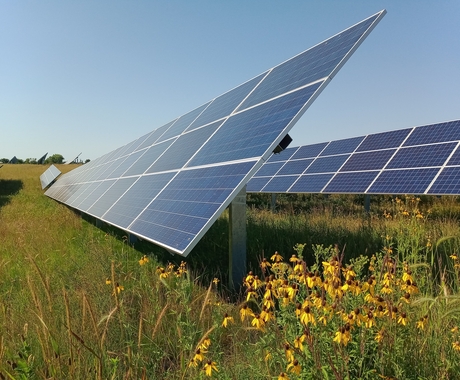Kalee Olson, policy associate, [email protected], 402.687.2100 ext. 1022; or Rhea Landholm, communications manager, [email protected] or 402.687.2100, ext. 1025
LYONS, NEBRASKA – The Center for Rural Affairs is encouraged to see the Biden administration’s support for agricultural producers and rural communities in its federal budget released Thursday. The proposed budget includes funding for a cover crop incentive program, as well as boosts in funding for programs supporting voluntary conservation and rural small businesses.
In 2021 and 2022, a $5 crop insurance premium discount was offered to producers who planted cover crops. The initiative, which was sustained by pandemic funds, resulted in discounts for 12 million and 10 million acres of cover crops, respectively. The president’s budget calls for legislative action to make the discount permanent as part of the new Cover Crop Incentive Program and proposes a budget of about $1 billion for 10 years, $75 million of which is allocated for 2024.
“This is great news for producers who are already planting cover crops or interested in trying the practice for the first time,” said Kalee Olson, policy associate. “We’re glad to see President Biden take steps to reward these efforts through federal crop insurance.”
The administration also proposed an increase in discretionary funding for Conservation Technical Assistance (CTA) to $904 million—an increase from about $800.9 million in 2023. Through CTA, Natural Resources Conservation Service field staff work one on one with farmers and ranchers to develop and implement personalized conservation plans aimed at building soil health, improving water quality, and increasing carbon sequestration through practices such as cover crops.
In addition to strong support for conservation, the proposed budget includes $8.3 million for the Rural Microentrepreneur Assistance Program (RMAP). The program supports rural small businesses through technical assistance and direct loans from intermediary organizations. This funding would provide a $2.3 million increase over 2023.
“RMAP continues to have a significant impact by supporting entrepreneurs who start businesses that keep rural main streets vibrant,” Olson said. “An increase in funding would allow more individuals access to assistance they are unable to find anywhere else.”
As part of the annual appropriations process, both the House and Senate will draft budgets to allocate funding to a range of federal programs, including CTA and RMAP, in the upcoming months.
“We hope Congress will follow the president’s lead and invest in these programs at similar funding levels,” Olson said.





